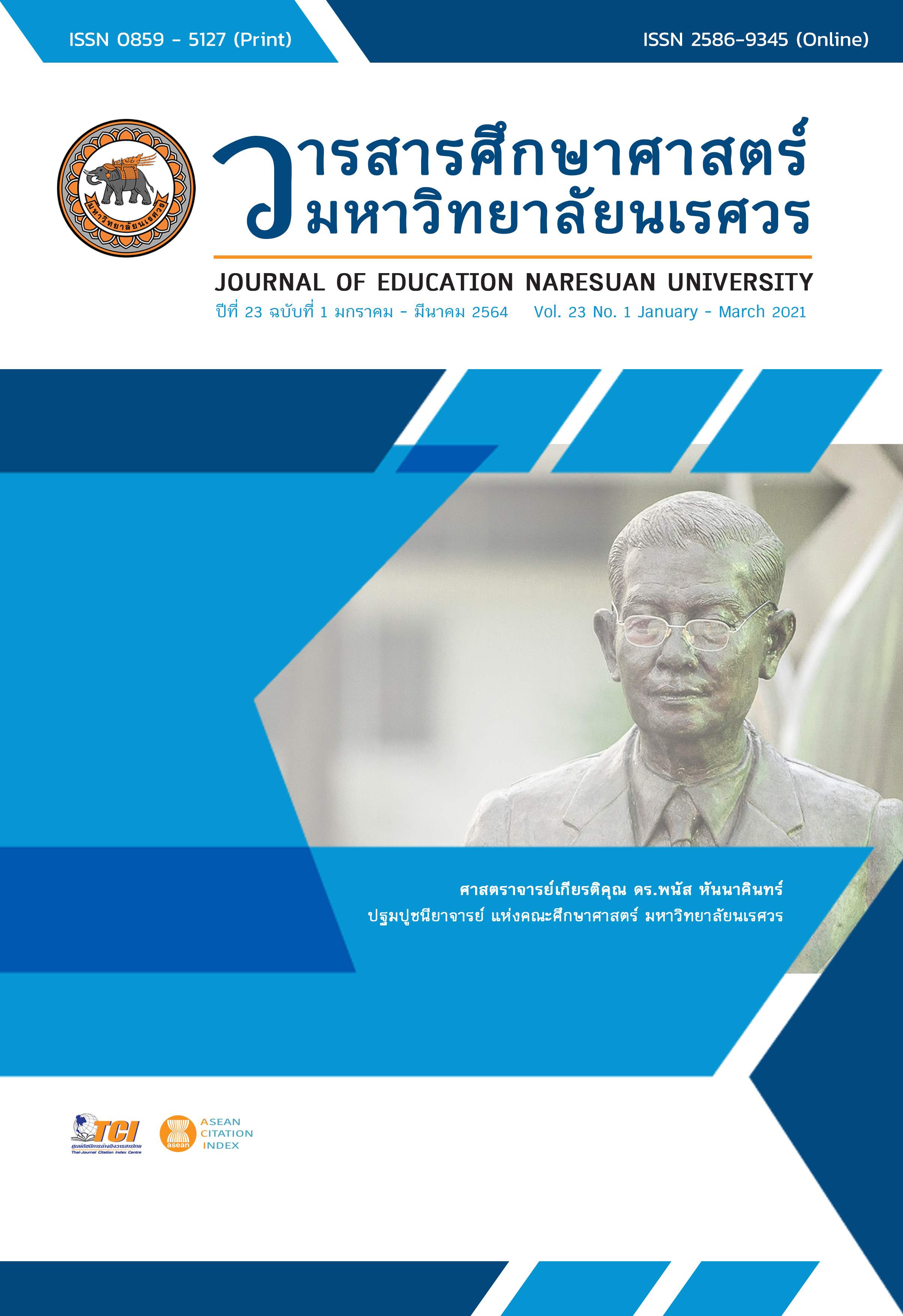THE PARTICIPATORY MANAGEMENT SUPPORTING PROCESS OF THE PARENT AND TEACHER GROUP FOR EDUCATIONAL QUALITY DEVELOPMENT OF INTERNATIONAL SCHOOL IN CHIANG MAI PROVINCE
Main Article Content
Abstract
This research was to 1) study the current states, problems, needs for development, and success factors of participatory management process of the Parent and Teacher Group for supporting education quality of international schools in Chiang Mai, 2) study the process for facilitating participatory management of the group for developing education quality of good practice international schools in Chiang Mai, 3) develop the process of participatory management of the group, and 4) study the results of using the process. The research found that 1) The current states, problems, needs for development, and success factors in general were at much level, problems in general were at moderate level, and need for development in general was at moderate level and success factors in general were at much level, 2) results of studying the process for enhancing participatory management of parent-teacher group which was good practice reveal that the parent and teacher group had clearly taken part in every step, 3) the process for enhancing participatory management had 5 steps each of which included principle, goals, methods/activities, success indicators and basic success factor of the school and the group, and 4) the process for the participatory management had achieved the goals set. The Parent and Teacher Group participated in the pilot project were satisfied and advantages from the projects.
Article Details
The owner of the article does not copy or violate any of its copyright. If any copyright infringement occurs or prosecution, in any case, the Editorial Board is not involved in all the rights to the owner of the article to be performed.
References
Alastair, T. W. (1982). Why community participation? Retrieved April 22, 2016, frohttps://www.ircwash.org/sites/default/files/ASSIGNMENT-CHILDREN-NO59-60-1982.pdf
Anannawee, P. (2014). Principle and theory of educational administration. Chonburi: Montree Printing Company.
Boonyathissatarn, E. (2010). SWOT professional analysis handbook. Bangkok: Panyachon.
Chiang Mai International School. (2015). Faculty Handbook 2015 - 2016. Chiang Mai: Chiang Mai International School.
Dissong, V. (2006). Participatory school administration. Bangkok: Tranaksorn.
Epstein, J. L. (1987). Parent involvement: What research says about administrators. Education and Urban Society, 19(2), 119-136.
Haack, K. M. (2007). Parent’ and Teachers’ beliefs about parent involvement in schooling. Retrieved April 2, 2017, from http://digitalcommons.unl.edu/cehsdiss/12
Kaewdang, R. (1999). Thai education revolution. Bangkok: Matichon Printing.
Ministry of Education. (1999). National Education Act B.E. 2542 (1999) and Amendments (Second National Education Act B.E. 2545 (2002). Retrieved February 8, 2016 from http:// http://www.moe.go.th/main2/plan/p-r-b42-01.htm
Naveekarn, S. (2002). Participative management. Bangkok: Bunnakrig 1991.
Office of the Private Education Commission. (2007). Private School Act B.E. 2550 (2007) as amended by No.2 B.E. 2554 (2011). Bangkok: OTEP Printing House.
Phromma, P. (2014). Participatory management. Retrieved March 10, 2016, from https://www.trang.nte.go.th/alltis16/UserFiles/Pdf/wijaiman.pdf
Puisuwan, P. (2013). The appropriate to Thai society guidelines for participation in school administration of parent teacher association (Doctoral dissertation). Bangkok: Silpakorn University.
Sodthiphun, A., Sirorod, P., Kokphon, A., & Jarusombat, S. (2008). How to participatory public administration of government agencies. Bangkok: Pinkaow Printing.
Sukarochana, A., Jansila, V., Mejang, S., & U-nakarin, T. (2018). Developing a model for parent engagement in the enhancement of students learning in private primary schools. Journal of Education Naresuan University, 20(1), 222-231.
Wisaraporn, S. (1994). Problems and Trends in Population in Educational Administration. Nonthaburi: Sukhothai Thammathirat Open University.
Wisaraporn, S. (2001). Participatory management. Nonthaburi: Sukhothai Thammathirat Open University.


